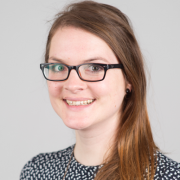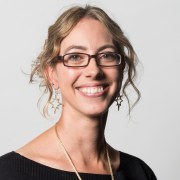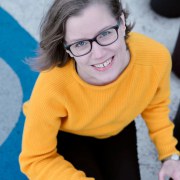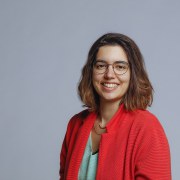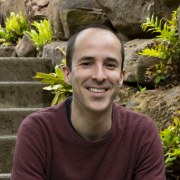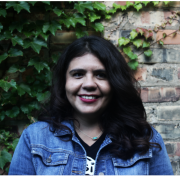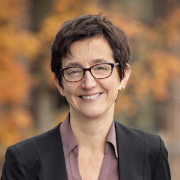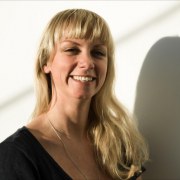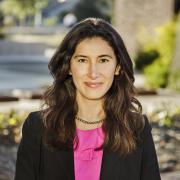Supporting equitable and socially just practice: the Equity Compass
Equity is a key focus of informal science learning. This session will introduce a new tool, the Equity Compass, co-produced in an international research-practice partnership to help practitioners reflect on and develop equitable practice. The tool highlights multiple dimensions of equity: challenging the status quo, working with and valuing minority communities, embedding equity and extending equity. We will have a conversation with international informal science learning practitioners on how they have used this tool in their own work and how the Equity Compass could complement other frameworks, followed by an interactive workshop, where participants will use the Equity Compass to reflect on their own practice.
This session is part of the Equity and inclusion conference track.
Facilitator
UCL Institute of Education
Session legacy
This was a well-attended session with lively discussions on improving equity in inclusion within informal STEM learning, a mix of the panel sharing experiences and discussing in small groups how specific opportunities can be made more equitable using the Equity Compass framework.
Spela began with the introduction to the Equity Compass framework; Kirsi spoke about how the Equity Compass informed a staff survey across Finnish science centers; Amparo and Sanne spoke about relating the Equity Compass with the wider equity initiatives in the sector (see Diversci website and the LinkedIn group Diversci.eu Community of Practice). Marianna presented how the Equity Compass has informed Cartas com Ciência, a letter exchange programme.
Participants shared valuable ideas about how science engagement can be more asset-based and participatory; and how equity can best be supported in our work to make sure everyone is supported and included in engaging with science.
Missed the session or want to know more about how to use the Equity Compass framework?
All resources are available at yestem.org, and we also have a free, self-paced online course: Equity in Informal STEM Learning: Using the Equity Compass.
Session speakers
Professor of Sociology of Education
UCL Institute of Education
Louise will give an overview of the Equity Compass and the four key areas of equity, including briefly how the tool was co-produced in the Youth Equity and STEM project (yestem.org). She will share how the tool can be used to reflect on, map and develop equitable practice, including for recording equitable outcomes from informal science learning experiences.
Finnish Science Centre Association
Kirsi will share how the Equity Compass has informed a survey for science centre staff across Finland, to gain insight into understanding and application of equity in their daily work practices. She will share how the tool has informed participatory working with typically underrepresented groups: young people aged 15 to 25 and people over 60. She will further discuss how experiments based on science capital thinking have challenged science centre staff to rethink what they consider as success.
Co-Founder, Co-Director & Postdoctoral Fellow
CIDTFF - Research Centre on Didactics and Technology in the Education of Trainers, Department of Psychology and Education, University of Aveiro; Cartas com Ciência
Co-presenting with Rafael, Mariana will share how the Equity Compass has informed a critical reflection and sparked a shift in mindset and practice at Cartas com Ciência (programmes of letter exchanges between scientists and students), particularly towards giving more value and agency to the students. See below for more details.
Co-founder and co-director
Co-presenting with Mariana, Rafael will share how the Equity Compass reshaped the training in informal science learning provided by Cartas com Ciência to scientists, and discuss preliminary experiences implementing this tool in the organisation's language, Portuguese. See above for more details.
Amanda will share how the Equity Compass has informed the practice at the science centre towards more equitable participatory working. She will also give examples of how embedding equity has – and is – radically transforming programmes, policy and partnerships, and how they are using the Equity Compass to reframe their thinking across the organisation, where equity is increasingly considered by all staff, from retail management to senior leadership.
Director of Innovation & Learning
Impression 5 Science Center
Co-presenting with Angela, Micaela will present a case study of the Youth Action Council at the Impression 5 Science Center, which was grounded in the practices of reclaiming, co-designing and authority sharing. See below for more details.
Co-presenting with Micaela, Angela will discuss how using the Equity Compass has been helpful to reflect on the equity dimensions of the Youth Action Council programme at the Impression 5 Science Center and how the tool has helped further develop their equitable practice. See above for more details.
sr. programme manager - diversity & inclusion
Sanne will reflect on how tools like the Equity Compass can support science centers & science museums. Drawing on her experience mentoring the Dutch pioneers in testing the Diversci framework and working with several science museums & science centers in the Netherlands in the programme Samen Inclusief - to become more diverse, accessible and inclusive institutions.
San Francisco
United States
Amparo will offer reflections on the Equity Compass from her experience with the DiverSci framework and working with science museums and science centres across Europe and the US.

